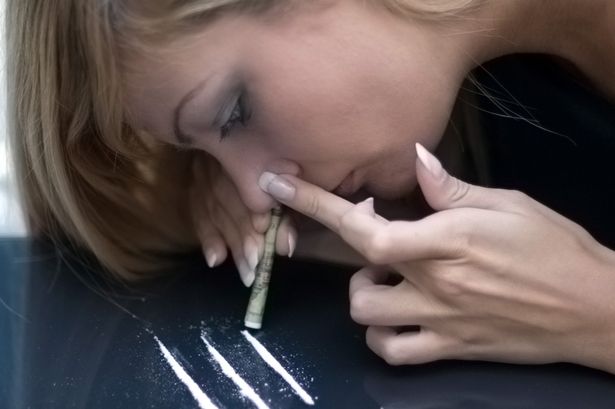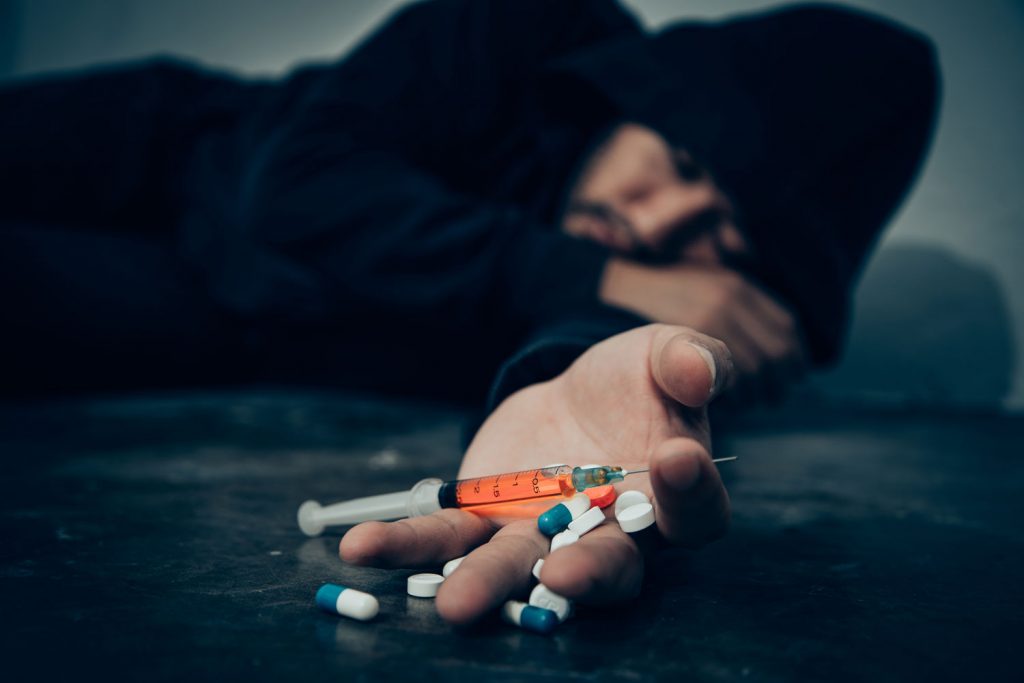One of the most powerful tools a parent has in helping their child steer clear of drugs and alcohol is early, proactive involvement. Waiting until there's already a problem is often too late—prevention begins long before the teen years. As early as age 5 or 6, it’s important to start having open conversations with your child about substances and why they can be dangerous. These talks don’t need to be heavy-handed or scary—they just need to be honest.
Explain to your child, in age-appropriate language, that people sometimes use substances like alcohol, cigarettes, or other drugs to deal with stress, sadness, or peer pressure. Help them understand that while these may seem like quick fixes, they can lead to much bigger problems. The earlier these conversations happen, the more likely your child is to feel comfortable talking to you as they get older—and the more likely they are to make informed choices when it really matters.

What Drives Teens Toward Substance Use
Teenagers turn to drugs or alcohol for many reasons, and it's not always about rebellion or carelessness. Sometimes, it starts with curiosity. Other times, it's a coping mechanism for deeper emotional struggles. Often, it’s about fitting in—especially when substances are easy to access and being used by friends.
Many teens experiment in social environments where alcohol, cigarettes, or marijuana are readily available. They may not fully understand the risks or consequences, and their developing brains are wired to seek reward and excitement. That combination can lead to poor judgment and risky behavior.
Here are some common influences that increase a teen’s likelihood of drug misuse:
-
Having close relatives with substance use disorders
-
Living with mental or behavioral health conditions like anxiety, depression, or ADHD
-
Tending toward impulsivity or sensation-seeking behavior
-
Experiencing traumatic life events, such as physical abuse or severe accidents
-
Struggling with low confidence or a sense of rejection by peers
Understanding these risk factors can help parents intervene early—before experimentation turns into a serious problem.

The Impact of Drug Use on Teen Lives
Teen drug abuse isn't just a phase—it can carry serious, long-lasting consequences that affect both the present and future. The earlier a teen starts using substances, the more likely they are to become dependent as they get older. But the risks go far beyond addiction.
Here are several common outcomes of teen drug use:
-
Addiction Risk – Teens who misuse substances are more likely to develop chronic dependency issues in adulthood.
-
Impaired Judgment – Drug use can cloud decision-making, leading to reckless social or interpersonal behavior.
-
Risky Sexual Behavior – Substance use is linked to unprotected sex, unplanned pregnancies, and exposure to sexually transmitted infections.
-
Mental Health Issues – Drug use can trigger new mental health conditions or make existing ones worse, including anxiety and depression.
-
Dangerous Driving – Getting behind the wheel while impaired endangers not only the teen but everyone around them.
-
Decline in Academic Performance – Teens who use drugs often struggle with concentration, memory, and school attendance, all of which can affect grades and future opportunities.
While some of these effects may not show up immediately, they can compound over time, making it harder for teens to break free later.
Understanding the Health Hazards of Substance Use
Drugs don’t just affect a teenager’s grades or relationships—they can harm the body in serious, sometimes irreversible ways. The physical risks vary depending on the substance, but none are truly safe.
Here’s a look at some of the most widely used drugs and their specific health dangers:
-
Cocaine – Increases the risk of heart attacks, strokes, and seizures.
-
Ecstasy (MDMA) – May lead to heart failure, liver failure, and extreme dehydration.
-
Inhalants – Repeated use can damage the heart, lungs, liver, and kidneys—often permanently.
-
Marijuana – Can impair brain development, affecting memory, concentration, and problem-solving; early, heavy use is also linked to long-term mental health issues such as paranoia or psychosis.
-
Methamphetamine – Long-term use can lead to hallucinations, paranoia, and violent behavior.
-
Opioids (including painkillers) – Pose high risks for overdose and can suppress breathing to life-threatening levels.
-
E-cigarettes (vaping) – Exposes users to toxic chemicals and leads to nicotine addiction, with many of the same dangers as smoking.
Some teens believe these substances are less harmful or more “natural” than others—but the reality is, any drug can lead to physical harm, addiction, or even death if misused.
How to Talk to Your Teen About Substance Use
Conversations about drugs and alcohol shouldn’t be one-time lectures—they should be ongoing dialogues built on trust and understanding. Choose moments when your teen is calm and receptive, and when you can speak without distractions like phones or television. Avoid starting these discussions when you're angry or emotionally charged, and never try to talk about serious topics if your child is under the influence at that moment.
Here are some effective ways to approach the topic:
-
Ask what they think – Start by getting their perspective. Rather than lecturing, invite them to share their opinions or questions. This sets the tone for mutual respect.
-
Explain your reasons – Talk about how substance use affects things that matter to them—like sports performance, driving privileges, personal health, or appearance.
-
Challenge media portrayals – Many movies, shows, or social media influencers glamorize drugs or alcohol. Ask your teen how they interpret those messages.
-
Practice saying no – Work together to brainstorm responses your teen can use if offered drugs by peers. Role-playing may help build confidence.
-
Be transparent – If your teen asks about your past experiences with substances, be honest in a way that communicates lessons learned rather than glorifying behavior.
These conversations may feel awkward at first, but they lay the groundwork for openness—and that’s what keeps kids coming back to talk when it really matters.
Encourage Positive Choices and Reinforce Healthy Habits
One of the most effective ways to help your teen avoid drugs and alcohol is to consistently highlight and support the positive aspects of their life. Instead of only focusing on the risks of substance use, help them build the confidence and motivation to make strong, independent decisions that align with their goals and values.
Here are some ways you can help foster that mindset:
-
Talk about making smart, independent decisions – Help your child think through situations they might face, and emphasize that they don’t have to follow the crowd. Encourage them to trust their instincts and be proud of choosing differently if it means staying true to themselves.
-
Celebrate achievements and milestones – Whether it’s a good grade, a sports win, or simply handling a situation maturely, recognize your child’s efforts. Praise not only boosts confidence, but it reinforces the kind of behavior you want to see more of.
-
Model healthy behavior yourself – If you smoke, consider quitting. Teens are more likely to avoid cigarettes if they don’t see adults using them. If you drink, do it responsibly and never drive afterward. Show your teen how to use medication properly, and never misuse prescriptions.
-
Encourage involvement in meaningful activities – Help your teen find a sense of purpose and identity through hobbies, sports, creative pursuits, or volunteering. These outlets don’t just fill time—they also build self-worth and community connections that make substance use less appealing.
-
Stay actively involved in their world – Whether it's attending their events, sharing meals, or just chatting during errands, consistent presence makes a difference. When you genuinely know your teen’s friends, habits, and routines, you're better positioned to notice if something changes—and to offer support if it does.
Teach Real Consequences of Substance Use
Teens are more likely to avoid drugs when they understand the full picture—not just the dangers to health, but also the personal, legal, and emotional consequences that can follow.
Use these talking points to make the realities clear:
-
How addiction begins – Explain how even occasional drug or tobacco use can quickly lead to dependence. For example, some teens don’t realize that just one cigarette can trigger a craving and start a cycle that’s hard to break.
-
Legal issues – Talk honestly about the laws regarding underage drinking or drug use. Let them know that being caught could lead to losing driving privileges, having a criminal record, or being assigned community service.
-
Bad decisions under the influence – Stress that drugs and alcohol impair judgment. Share examples of how people may say or do things they’d never consider sober—whether it's getting into unsafe situations, hurting others, or risking their own lives.
-
Set boundaries and follow through – Let your child know exactly what the consequences will be if they break family rules about substance use. But just as importantly, make sure to follow through on those consequences. Teens need to know that the boundaries you set come from love—and that you’ll stand by them.
-
Warn about inhalants – Many teens don’t realize that everyday items like glue, aerosol sprays, or gasoline can be deadly if inhaled. These substances can cause sudden heart failure, permanent brain damage, or seizures. Make sure your child understands that just because something is legal or found around the house doesn’t mean it’s safe to use that way.
Additional Strategies for Preventing Teen Substance Use
Beyond conversations, parents can implement everyday strategies that help teens stay safe, informed, and confident enough to resist drugs and alcohol.
Here are several proactive steps you can take:
-
Stay informed about their daily life – Know where your teen is, who they’re with, and what activities they’re participating in. Be involved enough to notice changes and engaged enough that they feel your support.
-
Establish clear rules with fair consequences – Be specific about your expectations—such as never getting into a car with someone who’s been drinking, or leaving a party where drugs are present. When these rules are broken, calmly and consistently apply the consequences you’ve already explained.
-
Get to know their friends – A teen’s peer group can heavily influence their behavior. Try to build relationships with their close friends and, when possible, with their friends’ parents too.
-
Secure medications at home – Keep an eye on all prescription and over-the-counter medications in your house. Teens may misuse household medications without fully understanding their risks.
-
Give praise often – When your teen shows responsibility or makes positive decisions, acknowledge it. Reinforce good behavior through encouragement and recognition.
-
Lead by example – Teens watch closely how adults behave. If you choose to drink, do so moderately and responsibly. Never use illegal drugs, and always follow prescribed directions for medication.
How to Spot the Signs of Drug Use in Teens
Even with strong parenting, peer pressure and other external influences can still lead some teens toward substance use. That’s why it’s important to know the early warning signs. Subtle shifts in behavior, appearance, or attitude can be indicators that something’s not right.
Here are some common red flags to look for:
-
Sudden change in peer group, new friends you’ve never met
-
Shifts in eating habits, sleep routines, or personal hygiene
-
Declining interest in school, sports, or favorite hobbies
-
Becoming secretive, withdrawn, or emotionally volatile
-
Discovering paraphernalia, empty medicine bottles, or unfamiliar containers in their room or belongings
If you notice several of these signs together—or any extreme behavior change—it’s worth exploring further.
What to Do If You Suspect Your Teen Is Using Substances
Finding out that your teen is using drugs or alcohol is frightening. But acting quickly and thoughtfully can make all the difference in helping them change direction.
Here’s how to respond:
-
Have a calm conversation – Don’t wait for proof or panic. The sooner you open a dialogue, the better. Even early experimentation can spiral into something more serious.
-
Create a safe space for honesty – Make it clear that your concern comes from love, not judgment. Be specific about what you’ve observed and allow them to speak openly in return.
-
Focus on choices, not character – Make the distinction between disapproving of drug use and disapproving of them as a person. Teens are still forming their identity, and shame can make things worse.
-
Increase your presence – Spend more time together, check in more often, and stay connected. Increased parental involvement can often be enough to disrupt risky behavior.
-
Seek help from professionals – If your teen seems deeply involved with drugs or shows signs of dependency, reach out to a counselor, doctor, or addiction specialist. The earlier treatment begins, the better the outcome.
It’s never too early to start these conversations, and it’s never too late to intervene with care. Your steady presence, honest communication, and ongoing involvement can have a lasting impact on your teen’s decisions about drugs and alcohol.











